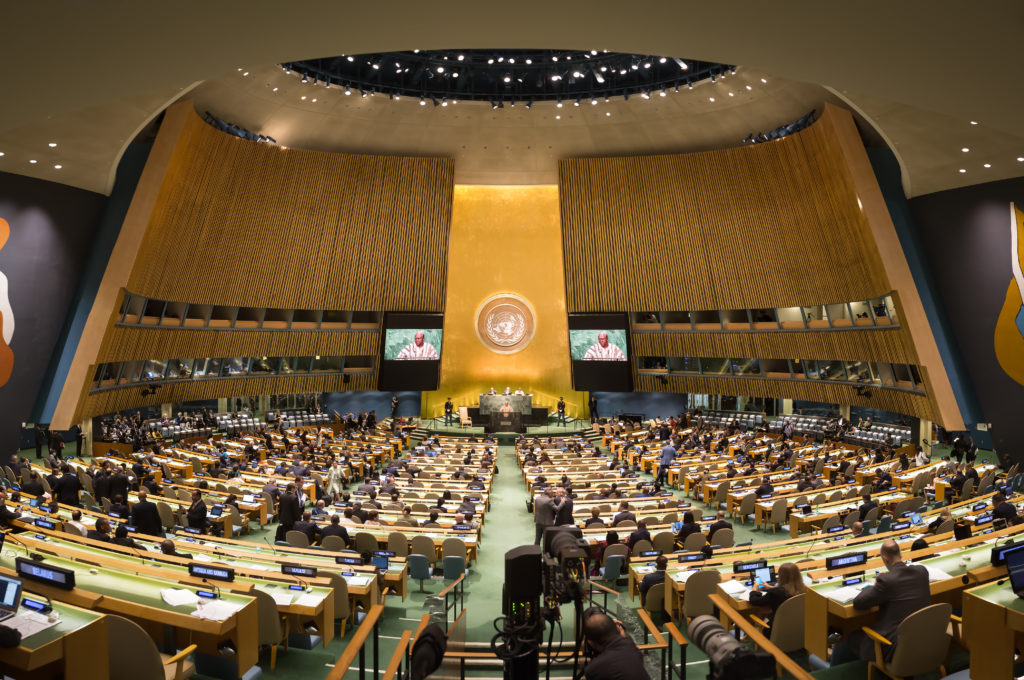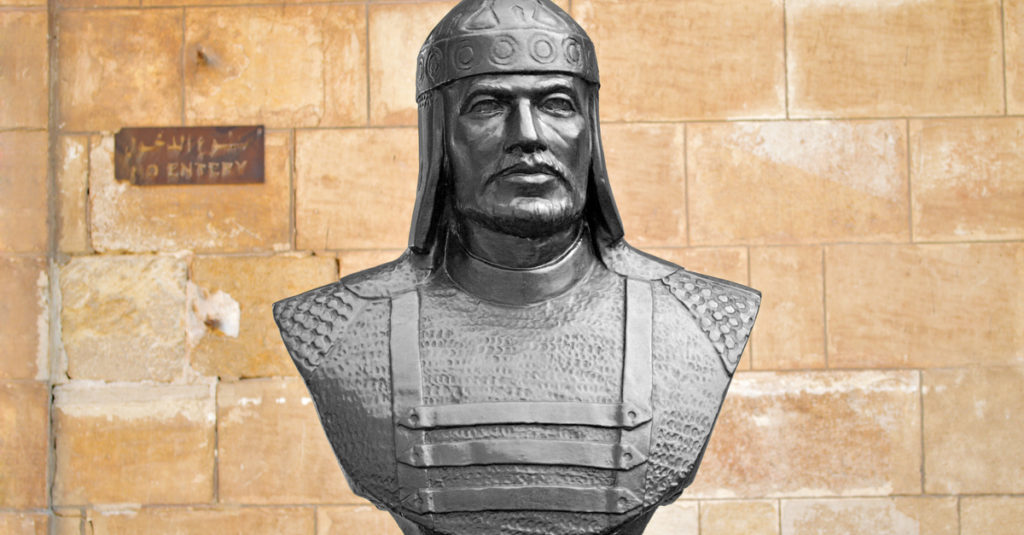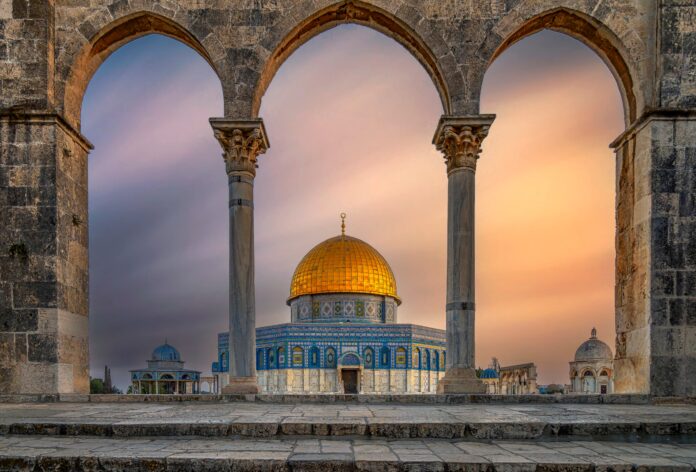Blogger Najm Al-Din considers all the proposals that are being posited as solutions for Palestine – from one or two states to many others – and concludes that the Islamic Khilafa is the only solution that Muslims should support.
As Israel continues its bombardment and invasion of Gaza and as negotiations to stop the slaughter seem to go nowhere, many are speculating about what the ultimate resolution will be to end this conflict once and for all.
Some back one state or two, others say we must focus on working with international institutions or through political participation, while many Muslims favour an Islamic alternative.
But before the Ummah can chart an independent path for the liberation of Palestine, it must acknowledge that the political channels which have been exhausted thus far have failed.
So let’s go through them one by one before examining the solution that every Muslim should aspire to – the Islamic Khilafa.
United Nations
Ever since its inception, the UN has masqueraded as an impartial guarantor of international peace and justice. However, it didn’t take long for Palestinians to recognise its perfidious nature.
Subscribe to our newsletter and stay updated on the latest news and updates from around the Muslim world!
To the dismay of Arabs who were seeking assurances of independence once the British Mandate expired, a 1947 UN resolution partitioned Palestine into two states, ceding more than half of Palestinian territory to the Zionist Jews who accounted for less than a third of the population.
But despite adopting a resolution for the establishment of an independent Jewish state in Palestine, the UN soon realised that it fuelled a beast with an infinite appetite for destruction. The controversial proposal irrevocably altered the political landscape of the Middle East, encouraging illegal land grabs and blockades for subsequent generations.

In typical disdain for international law, Israel has repeatedly rejected UN calls to desist from its illegal occupation. And successive Israeli administrations have been emboldened by the UN’s ceremonial peacekeeping powers, ignoring its proposals with impunity whilst legitimising brutality towards Palestinians.
Having never managed to gain Israeli cooperation for an independent commission to investigate alleged abuses of international law, the UN has been rendered impotent by Israel’s crimes against humanity.
This has hardened the long-standing scepticism of many in the Global South towards multilateral organisations, particularly Muslims who perceive the UN as a tool of U.S. interventionism, given its sordid track record in Iraq and Afghanistan.
The futility of pinning hopes on this toothless institution was recently highlighted by the power of permanent members of the Security Council like the U.S., which vetoed a ceasefire proposal for Gaza.
One may rationalise the UN’s weakness by pointing to Israel’s belligerence. However, Muslims mustn’t forget that by recognising the legitimacy of Jewish settlement in 1947, the organisation officially sanctioned the annexation of the Holy Land which engulfed the region in turmoil for decades.
Therefore, Muslims should cease engagement with the UN with immediate effect.
Two State Solution
Furthermore, the Ummah must discard stalled diplomatic initiatives like the two-state solution.
As much as the international community backs this ambiguous political roadmap, two territorially distinct states as envisaged under the U.S.-brokered Oslo accords offers no sustainable peace, given its vague definition of borders, limited provision to halt settlements, major caveats on Palestinian security, and largely unsettled proposal on the status of Jerusalem.
Proponents of this solution favour the return of Israel to its pre-1967 borders which legitimises the theft of territories that were annexed from Palestinains during the 1948 war, resulting in the Nakba which saw more than 700,000 Palestinians expelled from their homes.
And even a return to 1967 borders means the destruction of Zionist settlements housing hundreds of thousands of people which the Israelis would never accept. So the fact that the pro-settlement Israeli Ambassador to the UK recently shunned the proposal is unsurprising, as Israel was never amenable to Palestinian statehood in the first place.
One State Solution
With Israeli settlements in the West Bank thwarting any hopes of an independent and contiguous Palestinian state, some have floated the prospect of a single democratic state.
However, there is no consensus on how a binational state which merges Israel, the West Bank and Gaza into a larger federation will ensure parity for both parties.
While co-existing peacefully under a power-sharing framework sounds nice, an inclusive arrangement is unworkable when Zionists show no readiness to respect Palestinian rights.
The one state solution (where power is equally distributed amongst Palestinians and Israelis) has little support among ultra-right Zionists, as based on current demographic trends it will render the Jewish population a minority, thus undermining the notion of Jewish statehood which is the raison d’etre of the Zionist project.
Those on the right will endorse the idea so long as it’s conditioned on the preservation of a distinctly Jewish identity and annexation of the West Bank, which is unacceptable for Palestinians.
So the fundamentally irreconcilable positions between leftist adherents of a one-state solution and its far right proponents makes it unviable.
Political participation
Here in the UK, with Tory and Labour leaderships grovelling to the Israeli lobby and nonchalant about the depth of pro-Palestinian feeling amongst Muslims, the realisation is dawning that a rigged two party system is actively undermining Muslim interests.
Some have suggested tactical voting in constituencies with large Muslim concentrations. However, Muslim voters in these areas cluster strongly in seats with large Labour majorities. Even if they were to swing against Labour, it is unlikely to imperil Labour’s safe seats and would be offset by the swing towards Labour among other constituents.
Others have overstated the influence of a unified Muslim vote in a minority of constituencies called marginals, where there is a genuine prospect of seats changing hands through independent candidates. However, independent candidates lack infrastructure and support networks to leverage political agendas.
Arab States
Perhaps the greatest betrayal of the Palestinian cause is exemplified by its Arab neighbours.
A recent joint meeting of the Arab League and the Organisation of Islamic Cooperation (OIC) in Saudi Arabia confirmed this reality, with not a single head of state severing diplomatic ties with Israel.
For Gulf nations, security is conditioned on the acceptance of Israel’s settler-colonial project and any break with Tel Aviv would imperil their fiefdoms, placing them on a collision course with Israel and the USA.
By issuing hollow condemnations of Israel, Muslim leaders are creating the illusion of a rift in order to avoid a grassroots uprising similar to the Arab Spring and placate dissidents who object to normalisation and accession to the Abraham Accords.
The Khilafah
The Muslim world can no longer be a pawn on the geopolitical chessboard and must move from being a line in the footnotes of history to writing an entirely new book.
This is possible once we view the conflict through Islamic filters and prevent the collective momentum on Palestine from being misdirected.
Firstly, we must remember that Islam is the antithesis to secularised “religion.” Rather, it is a comprehensive deen, providing guidance for political governance, international relations and much of human affairs. Any solution to the crisis must be derived from within this framework and anchored to the primary sources of Islamic law.
Secondly, Muslims must acknowledge that based on its asl (origins), the system of democracy is an anathema to Islam. Whereas Islam declares that Allah is the lawmaker, the present rules-based order is premised on the usurpation of this exclusive divine right and built on the non-negotiable principle of parliamentary sovereignty and must therefore be rejected.

Thirdly, Islamic jurisprudence obliges Muslims to restore any occupied territory once under the Shari’ah to its original status.
These territories are classified as Muslim land until the Day of Judgement and it is traditionally the duty of the executive head of an Islamic State (Khalifah) to dispatch those with sufficient capability to liberate the region from occupation and reinstate Islamic law and order, which is essential for the dispensation of individual and collective justice.
Contrary to Western misconceptions, Islam has a robust tradition of rule of law which was enshrined in the “Sahifat al-Madina” (Constitution of Medina), where the Prophet Muhammad (pbuh) incorporated different faiths and tribes into a single confederation with common rights and responsibilities.
This social contract between Muslims, Christians and Jews was successfully emulated by various Islamic empires and dynasties across epochs, where Islamic law functioned as a guarantor of minority rights, as it did for generations under the Ottoman Khilafah before the Anglo-Zionist occupation of Palestine.
Therefore, the restoration of the Caliphate will unify the region so that all faiths can co-exist under the protection of an Islamic ruling system which will function as a single overarching political umbrella.
So the need of the hour is to reconfigure the geopolitical environment of the Muslim world in order to build a Caliphate outside of the nation-state paradigm, which is entrusted with conveying the divine message through its domestic and foreign policies.
Everyone from scholars and students of knowledge to those in power must enlist themselves in this civilizational struggle. At such a historic crossroads, we must collectively harness the capital and enterprise at our disposal to herald a new era in geopolitics, in which a transcontinental Caliphate serves as a bulwark against the aggressive posturing of predatory nations, liberates Palestine from the clutches of Zionism and places the region under the control of an Islamic state.
By establishing an interdependent commonwealth of Muslim states which implement Islamic law, commit to multilateral trade agreements, manage migratory flows for mutual benefit and uphold binding security agreements, not only can we retrieve territories which have been wrested from the Ummah but embody the Quranic ideal of stewardship on earth.



















